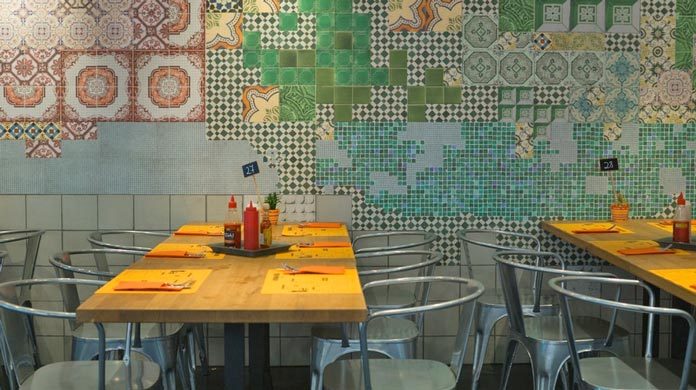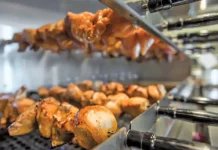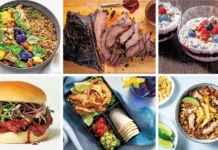
By: Richard S. Frazer, Pryor Cashman, Co-Chair, Restaurant, Food + Beverage Group
Restaurateurs are familiar with the “two-drink minimum” policy and the “three-martini lunch” phenomenon. Gerald Ford once remarked in a speech to the National Restaurant Association, “The three-martini lunch is the epitome of American efficiency. Where else can you get an earful, a bellyful and a snootful at the same time?” So whenever a new restaurant client comes to me to help to structure a start-up restaurant business from a corporate legal perspective, I reply “There’s a three-LLC (limited liability company) minimum.”

After assuring the client that my three LLC minimum policy is not intended to increase my legal fees or to create unnecessary bureaucracy, I explain the two-fold rationale for forming three separate LLCs, namely: (1) to insulate the client from liability and (2) to maximize the client’s potential profitability.
Looking at the liability side first, ownership of a restaurant is fraught with risk. There are the risks associated with leasing real property, with being an employer, with dealing with customers and the general public, as well as the risk of claims by equity investors in raising capital and the claims of general creditors of the restaurant including vendors and lenders.
Limiting Liability Under the Restaurant Lease
By creating a separate limited liability company to enter into the lease for the restaurant (“TenantCo”), the client can limit its potential liability to the landlord. If the restaurant is unsuccessful, TenantCo can surrender the premises to the landlord and, because TenantCo itself has no meaningful assets, the landlord will not be able to enforce the lease for the remaining term. The owner may have to provide the landlord with a so-called “good-guy guaranty” to induce the landlord to grant the lease to an uncapitalized TenantCo, but such guarantees are usually limited in duration to a relatively short period after the premises have been surrendered.
The other advantage of having a separate tenant entity is that it insulates the owner and investors from claims of employees (e.g., minimum wage, tipping, wrongful termination and discrimination), customers (e.g., food health violations), vendors (e.g., suppliers) and from other creditors, generally.
Protecting Intellectual Property Assets
The intellectual property associated with a restaurant is one of the most valuable assets of any restaurant business. Even if the client has no initial intention of subsequent expansion beyond the first restaurant or to license the concept, such opportunities for additional sources of revenue and increased profitability often subsequently present themselves. The goodwill created in connection with a successful restaurant is its brand, the crown jewel of the business. By creating a second limited liability company to act as the intellectual property holding company (the “IP HoldCo”), the trademarks and other proprietary trade secrets (e.g., recipes, know-how, business procedures and methods) are shielded from the reach of potential claimants and creditors. Moreover, the equity investors financing the creation of the restaurant do not necessarily have an ownership interest in the intellectual property associated with the restaurant. IP HoldCo can license the trademark and other intellectual property to the TenantCo, even on a royalty-free basis, while the client retains ownership of the intellectual property, which can be exploited through channels other than the restaurant (e.g., licensing the brand to other operators of restaurants or creating wholesale food products or other merchandise).
Establishing the Holding Vehicle
The third LLC in the “three-LLC minimum” is the holding company or vehicle through which equity investors will invest in consideration of their ownership membership interests (“HoldCo”). HoldCo insulates the investors and the client from the liabilities to which its subsidiary, TenantCo, which actually operates the restaurant business, may become subject. As discussed above, the equity investors are investing in HoldCo rather than IP HoldCo and do not have any direct ownership in the intellectual property. The HoldCo operating agreement will provide for the economics of the investors’ equity investment as well as for the governance and management of HoldCo, which is usually the responsibility of the founding client, as Manager of HoldCo.
Of course, there may be a need to create a fourth LLC to be the Manager of HoldCo so as to further insulate the client from securities law claims by the investors and which entity may also be entitled to a management fee in addition to its ownership interest in HoldCo. If the same investors are going to invest in subsequent financings for the future expansion of the restaurant into a restaurant chain, then HoldCo will own multiple TenantCo subsidiaries in order to insulate each TenantCo from the liabilities of each of the other restaurants in the chain. If there are going to be new or additional investors in subsequent restaurants, it may be advisable to also form additional HoldCo entities for each new restaurant through which the investors will invest.
The “three-LLC minimum” may quickly evolve into a “four-LLC” or “five-LLC” minimum. Hopefully, the foregoing will make prospective restaurant clients appreciate “the more, the merrier” when it comes to structuring and forming a successful restaurant chain.
Richard Frazer co-chairs Pryor Cashman’s Restaurant, Food + Beverage Group, where he represents clients including Major Food Group and New York-favorite Los Tacos No. 1, as well as celebrity chefs, independent restaurants and national franchises. A self-proclaimed foodie and member of the James Beard Foundation, Frazer advises on business formation, startup and expansion financing, licensing, operational issues and franchising, enabling clients to grow their footprint while protecting their brands and interests. He can be reached at rfrazer@pryorcashman.com or follow him on Twitter at @guttergourmet.
























Comments are closed.